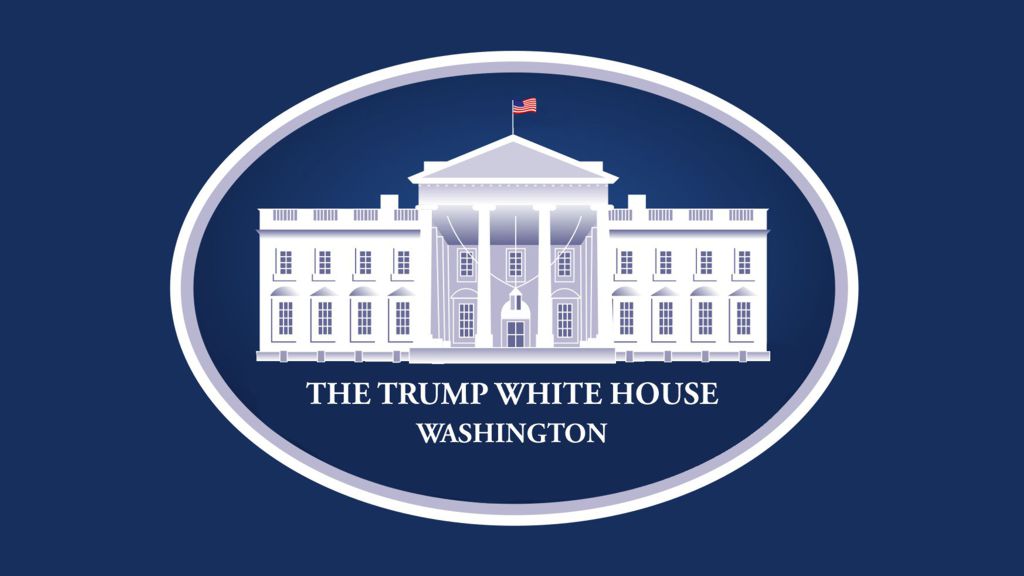President Donald J. Trump signed an executive order creating a “sub-cabinet” for federal water issues. The first priority set out by the order is to increase dam storage and other water storage (particularly in the West) to provide reliable water supplies for farms, families, businesses, and fish and wildlife; and to generate dependable hydro-power. Interior Secretary David Bernhardt and Environmental Protection Agency Administrator Andrew Wheeler will be in charge of the inter-agency water body.
Reservoir storage is the biggest bang for the buck and benefits every water user, yet for more than four decades, California has refused to increase the storage that ensures our water security.
Executive Order
By the authority vested in me as President by the Constitution and the laws of the United States of America, it is hereby ordered as follows:
Section 1. Purpose. Abundant, safe, and reliable supplies of water are critical to quality of life for all Americans, fueling our economy, providing food for our citizens and the world, generating energy, protecting public health, supporting rich and diverse wildlife and plant species, and affording recreational opportunities. While America is blessed with abundant natural resources, those resources must be effectively managed, and our water infrastructure must be modernized to meet the needs of current and future generations.
Executive departments and agencies (agencies) that engage in water-related matters, including water storage and supply, water quality and restoration activities, water infrastructure, transportation on our rivers and inland waterways, and water forecasting, must work together where they have joint or overlapping responsibilities. This order will ensure that agencies do that more efficiently and effectively to improve our country’s water resource management, modernize our water infrastructure, and prioritize the availability of clean, safe, and reliable water supplies.
Sec. 2. Policy. It is the policy of the United States to:
(a) Improve coordination among agencies on water resource management and water infrastructure issues;
(b) Reduce unnecessary duplication across the Federal Government by coordinating and consolidating existing water related task forces, working groups, and other formal cross-agency initiatives, as appropriate;
(c) Efficiently and effectively manage America’s water resources and promote resilience of America’s water-related infrastructure;
(d) Promote integrated planning among agencies for Federal investments in water-related infrastructure; and
(e) Support workforce development and efforts to recruit, train, and retain professionals to operate and maintain America’s essential drinking water, wastewater, flood control, hydropower, and delivery and storage facilities.
Sec. 3. Interagency Water Subcabinet. To promote efficient and effective coordination across agencies engaged in water-related matters, and to prioritize actions to modernize and safeguard our water resources and infrastructure, an interagency Water Policy Committee (to be known as the Water Subcabinet) is hereby established. The Water Subcabinet shall be co-chaired by the Secretary of the Interior and the Administrator of the Environmental Protection Agency (Co Chairs), and shall include the Secretary of Agriculture, the Secretary of Commerce, the Secretary of Energy, the Secretary of the Army, and the heads of such other agencies as the Co-Chairs deem appropriate. The Department of the Interior or the Environmental Protection Agency (EPA) shall, to the extent permitted by law and subject to the availability of appropriations, provide administrative support as needed for the Water Subcabinet to implement this order.
Sec. 4. Reducing Inefficiencies and Duplication. Currently, hundreds of Federal water-related task forces, working groups, and other formal cross-agency initiatives (Federal interagency working groups) exist to address water resource management. Within 90 days of the date of this order, the Water Subcabinet shall, to the extent practicable, identify all such Federal interagency working groups and provide recommendations to the Chairman of the Council on Environmental Quality (CEQ), the Director of the Office of Management and Budget (OMB), and the Director of the Office of Science and Technology Policy (OSTP) on coordinating and consolidating these Federal interagency working groups, as appropriate and consistent with applicable law.
Sec. 5. Improving Water Resource Management. Federal agencies engage in a wide range of activities relating to water resource management. Within 120 days of the date of this order, the Water Subcabinet shall submit to the Chairman of CEQ, the Director of OMB, and the Director of OSTP a report that recommends actions to address the issues described below, and for each recommendation identifies a lead agency, other relevant agencies, and agency milestones for fiscal years 2021 through 2025:
(a) Actions to increase water storage, water supply reliability, and drought resiliency, including through:
(i) developing additional storage capacity, including an examination of operational changes and opportunities to update dam water control manuals for existing facilities during routine operations, maintenance, and safety assessments;
(ii) coordinating agency reviews when there are multi-agency permitting and other regulatory requirements;
(iii) increasing engagement with State, local, and tribal partners regarding the ongoing drought along the Colorado River and regarding irrigated agriculture in the Colorado Basin;
(iv) implementing the “Priority Actions Supporting Long-Term Drought Resilience” document issued on July 31, 2019, by the National Drought Resilience Partnership; and
(v) improving coordination among State, local, tribal, and territorial governments and rural communities, including farmers, ranchers, and landowners, to develop voluntary, market based water and land management practices and programs that improve conservation efforts, economic viability, and water supply, sustainability, and security;
(b) Actions to improve water quality, source water protection, and nutrient management; to promote restoration activities; and to examine water quality challenges facing our Nation’s minority and low-income communities, including through:
(i) implementing the “Great Lakes Restoration Initiative (GLRI) Action Plan III” issued on October 22, 2019, by the EPA for the GLRI Interagency Task Force and Regional Working Group, established pursuant to the Water Infrastructure Improvements for the Nation Act (Public Law 114-322);
(ii) enhancing coordination among the Mississippi River/Gulf of Mexico Watershed Nutrient Task Force partners to support State implementation of nutrient reduction strategies;
(iii) increasing coordination between agencies and members of the South Florida Ecosystem Restoration Task Force, established pursuant to the Water Resources Development Act of 1996 (Public Law 104 303), and implementing and completing the activities included in the Comprehensive Everglades Restoration Plan, established pursuant to the Water Resources Development Act of 2000 (Public Law 106 541); and
(iv) continuing implementation of the EPA’s memorandum entitled “Updating the Environmental Protection Agency’s Water Quality Trading Policy to Promote Market-Based Mechanisms for Improving Water Quality” issued on February 6, 2019;
(c) Actions to improve water systems, including for drinking water, desalination, water reuse, wastewater, and flood control, including through:
(i) finalizing and implementing, as appropriate and consistent with applicable law, the proposed rule entitled “National Primary Drinking Water Regulations: Proposed Lead and Copper Rule Revisions,” 84 Fed. Reg. 61684 (Nov. 13, 2019);
(ii) implementing the “National Water Reuse Action Plan” issued on February 27, 2020, by the EPA;
(iii) coordinating with the Federal Interagency Floodplain Management Task Force, established pursuant to the National Flood Insurance Act of 1968 (Public Law 90-448), on Federal flood risk management policies and programs to better support community needs; and
(iv) continuing coordination among agencies concerning the Department of Energy’s Water Security Grand Challenge to advance transformational technology and innovation to provide safe, secure, and affordable water; and
(d) Actions to improve water data management, research, modeling, and forecasting, including through:
(i) aligning efforts and developing research plans among the Secretary of the Interior, the Secretary of Agriculture, the Administrator of the National Oceanic and Atmospheric Administration, and the Secretary of the Army, through the Assistant Secretary of the Army (Civil Works), to ensure that America remains a global leader for water-related science and technology capabilities;
(ii) implementing common methods of water forecasting, including the use of snow monitoring tools, on a national and basin scale, supported by weather forecasting on all scales;
(iii) developing state-of-the-art geospatial data tools, including maps, through Federal, State, tribal, and territorial partnerships to depict the scope of waters regulated under the Federal Water Pollution Control Act Amendments of 1972 (Public Law 92-500); and
(iv) implementing actions identified in the “Federal Action Plan for Improving Forecasts of Water Availability” issued on October 18, 2019, by the Department of the Interior and the Department of Commerce pursuant to section 3 of the Presidential Memorandum of October 19, 2018 (Promoting the Reliable Supply and Delivery of Water in the West).
Sec. 6. Report. Within 1 year of submitting the report required by section 5 of this order, and annually thereafter, the Water Subcabinet shall update the Chairman of CEQ, the Director of OMB, and the Director of OSTP on the status of the actions identified in the report.
Sec. 7. Integrated Infrastructure Planning. Agencies oversee a number of programs to enhance coordination of cross agency water infrastructure planning and to protect taxpayer investments. Within 150 days of the date of this order, the Water Subcabinet shall identify and recommend actions and priorities to the Director of OMB, the Chairman of CEQ, and the Assistant to the President for Economic Policy to support integrated planning and coordination among agencies to maintain and modernize our Nation’s water infrastructure, including for drinking water, desalination, water reuse, wastewater, irrigation, flood control, transportation on our rivers and inland waterways, and water storage and conveyance. The recommendations shall consider water infrastructure programs that are funded by the Department of Defense through the Army Corps of Engineers, and by the Department of the Interior, the Department of Agriculture, the Department of Energy, the EPA, the Federal Emergency Management Agency, the Economic Development Administration, and other agencies, as appropriate. Such programs include the EPA’s Water Infrastructure Finance and Innovation Act program, established pursuant to the Water Resources Reform and Development Act of 2014 (Public Law 113 121) and amended by the America’s Water Infrastructure Act of 2018 (Public Law 115-270), which modernizes the aging water infrastructure of the United States, improves public health protections, and creates jobs; the Department of Agriculture’s rural development programs, which make and support investments in water infrastructure; and the Department of Agriculture’s Natural Resources Conservation Service programs, which promote source water protection, improve water quality, and assist with developing new water infrastructure projects.
Sec. 8. Water Sector Workforce. Trained water-sector professionals are vital to protecting public health and the environment through strategic planning, operation and maintenance of treatment facilities, and implementation of water management programs. Within 150 days of the date of this order, the Water Subcabinet, in consultation with the Secretary of Labor, the Secretary of Health and Human Services, the Secretary of Education, the Secretary of Veterans Affairs, and the heads of other agencies, as appropriate, shall identify actions and develop recommendations to improve interagency coordination and provide assistance and technical support to State, local, tribal, and territorial governments in order to enhance the recruitment, training, and retention of water professionals within drinking water, desalination, water reuse, wastewater, flood control, hydropower, and delivery and storage sectors. Such recommendations shall be submitted to the Chairman of CEQ, the Assistant to the President for Domestic Policy, the Assistant to the President for Economic Policy, and the Chairman of the Council of Economic Advisers.
Sec. 9. General Provisions. (a) Nothing in this order shall be construed to impair or otherwise affect:
(i) the authority granted by law to an executive department or agency, or the head thereof; or
(ii) the functions of the Director of the Office of Management and Budget relating to budgetary, administrative, or legislative proposals.
(b) This order shall be implemented in a manner consistent with applicable law and subject to the availability of appropriations.
(c) This order is not intended to, and does not, create any right or benefit, substantive or procedural, enforceable at law or in equity by any party against the United States, its departments, agencies, or entities, its officers, employees, or agents, or any other person.
DONALD J. TRUMP
THE WHITE HOUSE,
October 13, 2020.







